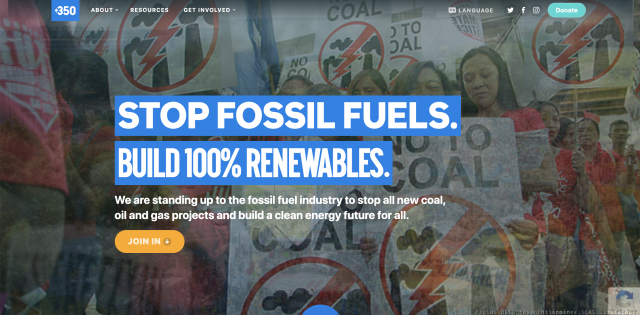
World-renowned environmentalist Dr. Bill McKibben gave his outlook for climate change in a Stony Brook University sponsored colloquium on Jan. 6.
Hosted by the Alan Alda Center for Communicating Science, the School of Journalism and the School of Marine and Atmospheric Sciences (SoMAS), the chat sought to create a meaningful conversation about climate change. A recent report from the European Union’s Copernicus Climate Change Service found that 2020 tied with 2016 for the hottest year on record.
An accomplished author and journalist, McKibben founded the climate activist group, 350.org. He is also a winner of the Gandhi Peace Award and Right Livelihood Award.
“The Alda Center is all about science communication, but communication that is based on empathy,” Julia Hathaway, a postdoctoral researcher for the Alda Center and one of the event’s organizers said in a later interview with The Statesman. “The ideal way to talk about science is to be in the moment.”
She said McKibben’s ability to break complicated topics down is part of what makes him so well-respected. This made him a highly-requested guest speaker amongst Stony Brook University faculty.
“There’s always criticism of people who are deep in academia and how they don’t connect with practitioners, but he’s done that well,” said Hathaway. “He was somebody that people respected. So when we reached out, he astonishingly said, ‘yes, I’ll make that time.’”
During the Zoom discussion, McKibben answered questions that covered political polarization, corporate influence and methods of fighting against climate change.
As McKibben explained, the path of climate activism has been one of striving for clear communication.
“How do you make it possible for people to think clearly again? One way we do that is by building models,” he said. “One of [350.org’s] beginning goals was to get the message across about the trouble we’re in all over the planet.”
“It’s not going to happen one Tesla or vegan dinner at a time” McKibben said. “It’s going to happen if people band together to stand up to those political and economic forces.”
He said that, contrary to how many view it today, climate change is rooted in a non-partisan origin. Even former President George H. W. Bush dubbed himself an environmentalist.
It wasn’t until the fossil fuel industry took action that this began to change.
“The biggest industry on the planet at the time took a small percentage of their capital and used it to finance extensive enormous architecture, phony think tanks, ads, and buying politicians by the carload,” McKibben said.
For viewers at the event, like SoMAS Postdoctoral Associate Joseph Pitt, tidbits like that defined the event.
“It’s interesting to think back to a time before climate science was so hard-wired into our politics and reflect on how we got to where we are today,” Pitt said.
Another viewer, Nathan Hirtle, a graduate student studying marine science, praised McKibben’s ability to offer hope.
“I research marine ecology now, and Bill and other people like him who are passionate about making a difference contributed towards my desire to make a difference in the planet’s future,” he said.
McKibben cited the recent victories of President-elect Joe Biden and the recent Georgia Senate elections as reasons to be hopeful. But above all, he emphasized that those wanting change aren’t alone.
“You have hundreds of thousands of brothers and sisters in every corner of the planet, thinking the same things and working in the same direction,” McKibben said. “That should come as your comfort and the buoy as we move forward.”










